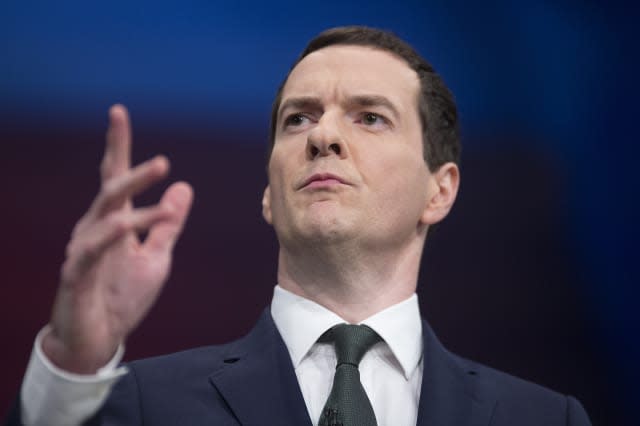George Osborne faces 'fatal' motion on tax credit proposals in the Lords

Chancellor George Osborne is facing a last-ditch bid to kill off his controversial tax credit cuts in the House of Lords.
A rare "fatal" motion is expected to be tabled by peers opposed to the measures this week, with a potential crunch vote next Monday.
Labour sources suggested such a motion would be almost certain to result in a Government defeat as there is no Tory majority in the Upper House.
The move is possible because the Treasury has chosen to introduce the changes using a statutory instrument, rather than including them in the Finance Bill - which does not have to be passed by the Lords.
Fatal motions are rarely used as peers are unwilling to undermine the supremacy of the Commons. But opponents will argue that the Salisbury Convention does not apply as the tax credit plans did not feature in the Conservative election manifesto.
A crossbench peer is likely to be found to put the motion in order to maximise support.
The threat could increase the pressure on Mr Osborne to offset the impact of the cuts, which have been causing anxiety on the Tory benches.
Former international development secretary Andrew Mitchell backed the shake-up over the weekend, but admitted that "tweaks" may be needed to protect the working poor.
Labour has called an opposition day debate on Tuesday demanding the reversal of the changes, which are due to take effect next April. That vote will not be binding on ministers, but any rebellion on the Tory benches would be highly embarrassing.
Shadow chancellor John McDonnell has confirmed that Labour would reverse the cuts if it wins power in 2020.




